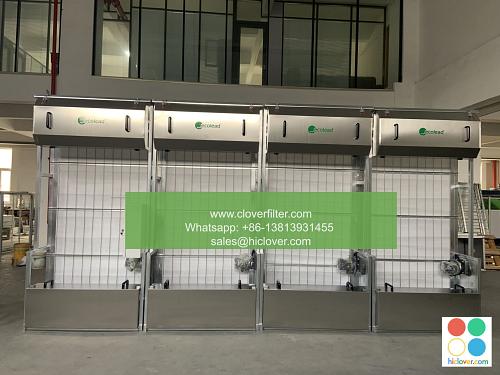Air Filter Certification: A Competitive Advantage for HVAC Companies

In the competitive world of Heating, Ventilation, and Air Conditioning (HVAC) companies, staying ahead of the curve is essential for success. One often overlooked aspect that can provide a significant competitive edge is air filter certification. In this article, we will delve into the importance of air filter certification, its benefits, and how it can be a game-changer for HVAC companies looking to differentiate themselves in the market.
Understanding Air Filter Certification
Air filter certification refers to the process of verifying that air filters meet specific standards and criteria for performance, efficiency, and safety. This certification is usually awarded by reputable third-party organizations, such as the Air-Conditioning, Heating, Refrigeration Certification Board (ACHR) or the International Organization for Standardization (ISO). By obtaining certification, HVAC companies can demonstrate their commitment to providing high-quality products and services that meet or exceed industry standards.
Benefits of Air Filter Certification
So, why is air filter certification so important for HVAC companies? Here are a few key benefits:
- Improved Indoor Air Quality (IAQ): Certified air filters are designed to capture a higher percentage of airborne particles, including dust, pollen, and other contaminants, resulting in cleaner and healthier indoor air.
- Increased Energy Efficiency: By using certified air filters, HVAC systems can operate more efficiently, reducing energy consumption and lowering utility bills for building owners and occupants.
- Enhanced System Performance: Properly certified air filters can help extend the lifespan of HVAC equipment, reduce maintenance costs, and prevent premature system failure.
- Competitive Advantage: By highlighting their certified air filter offerings, HVAC companies can differentiate themselves from competitors and attract customers who prioritize indoor air quality, energy efficiency, and system performance.
- Commercial Buildings: Office buildings, schools, hospitals, and other commercial spaces can benefit from certified air filters to improve IAQ, reduce energy costs, and promote occupant health and productivity.
- Industrial Facilities: Manufacturing plants, warehouses, and other industrial settings require high-quality air filtration to remove airborne contaminants, reduce equipment damage, and prevent downtime.
- Residential Homes: Homeowners can also benefit from certified air filters to improve IAQ, reduce energy bills, and create a healthier living environment for their families.
- Healthcare Facilities: Hospitals, clinics, and other healthcare settings require the highest level of air filtration to prevent the spread of airborne pathogens and maintain a sterile environment.
- Research Certification Options: Look into various certification programs, such as those offered by ACHR or ISO, and determine which ones align with your company’s goals and objectives.
- Meet Certification Requirements: Ensure that your air filters meet the necessary standards and criteria for certification, including performance, efficiency, and safety requirements.
- Submit Application and Fees: Submit your application and pay the required fees to the certifying organization.
- Undergo Testing and Inspection: Arrange for testing and inspection of your air filters to verify compliance with certification standards.
- Maintain Certification: Once certified, ensure that your air filters continue to meet certification standards through regular testing and maintenance.
Application Areas for Certified Air Filters
Certified air filters have a wide range of applications across various industries, including:
Getting Certified: A Step-by-Step Guide
So, how can HVAC companies obtain air filter certification? Here’s a step-by-step guide:
Conclusion
In conclusion, air filter certification is a competitive advantage that HVAC companies cannot afford to ignore. By obtaining certification, companies can demonstrate their commitment to quality, efficiency, and safety, while also differentiating themselves in a crowded market. Whether you’re serving commercial, industrial, residential, or healthcare clients, certified air filters can help you stand out from the competition and provide a higher level of service to your customers. So, take the first step today and explore the benefits of air filter certification for your HVAC company.
It looks like you’re ready to start a conversation or ask a question, but you haven’t given me a specific prompt yet. What’s on your mind? Do you have a topic you’d like to discuss, a question you’d like to ask, or perhaps a problem you’re trying to solve? I’m here to help with anything you need!

